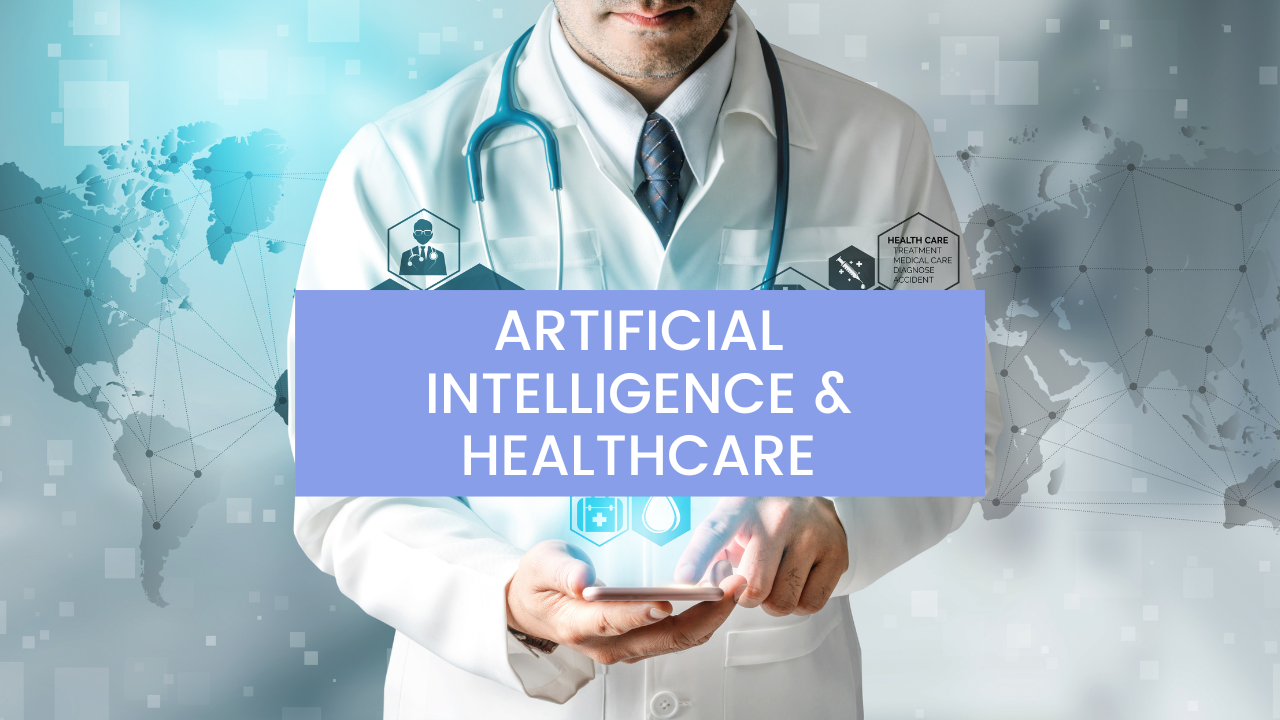AI Health care, will it take over the doctor?
The word ‘artificial intelligence’ has drawn on a negative connotation for most of us in today’s world. We start to imagine large and intimidating metal clad robots with rigged movements who are there to take over all our jobs. This fearful and rather uncanny image has made many to falsely believe and misjudge the extreme potential that artificial intelligence has within different fields of work, particularly in the field of healthcare. How would that be, you may ask? How are we not creating a potentially destructive dependence over technology that can malfunction? How are we not forcing doctors and nurses to remove themselves from their positions to make way for medical robots? Well, the answer might not be simple but it is revolutionary.
The fact is artificial intelligence does not replace the normal method in which we practice healthcare, but rather supplements and aids it. Because of its efficiency and effectiveness, the implementation of artificial intelligence in customary medical procedures, such as patient diagnosis, data processing and identification of health outcomes as well more, leads to better results. It can drastically reduce the chances of inaccuracies and mistakes, an issue that has led to more deaths than countable among hospitals. Furthermore, with the ongoing development of AI technology, the possibilities of malfunctioning are lessened, making such programs incredibly reliable in use and functionality. Here are the top 5 benefits of using AI in healthcare, where these benefits have been found and experienced by actual hospitals and medical facilities using AI technology:
1. Faster and More Accurate Diagnosis
The most prominent feature of AI technology is its ability to use complex neural architectures to accurately predict a certain outcome. Improper medical diagnosis has been one of the leading causes of deaths in hospitals, where doctors might not have enough of a patient’s medical history or might be too swamped with a large number of patient cases for them to justly diagnose a patient with their given symptoms. Therefore, with AI technology, years of medical records become instantly accessible to doctors and nurses while its computer technology can help retrieve information based on the patient’s case at a faster rate than doctors are able to. This would mean that there is less pressure put on a doctor and a greater chance of the patient being given the treatment that they need.
2. Greater Research Help and Improved Facilitation of Medicine
Medicine needs to be constantly changing. With hundreds of clinical trials running every day in hospitals and medical facilities over the world, we can understand that medicine demands innovation and improvement. AI technology has facilitated scientific breakthroughs like no other instrument, where its ability to run through billions of data points and efficiently localize and analyze such information enables a quicker and precise creation of different hypothesizes which can aid the development of new medicine as well as enhance the effects of old ones. Such observations can then be appropriately applied in clinical trials to assimilate its risks and success rate before going on to help patients in real life. Ideally, the technological breakthrough made from artificial intelligence is what facilitates medical breakthroughs that can be made when such a device is used in healthcare.
3. Personalizes Patient Care
Doctors are easily able to pull up medical records of their patients through AI technology but through its use to make sense of correlations and patterns in multidimensional space, doctors are also given the ability to find patients suffering from similar symptoms. This helps them to create better responses to their nature of suffering as well as offers the chance of having an informed discussion with them – something which leaves the patient more at comfort and well briefed over their specific cases. This is particularly beneficial for various NHS trusts which struggle to offer personalized patient care, where most patients tend to put in complaints for customer service. With AI technology, doctors can understand human responses even better and provide improved care for those whom they treat.
4. Earlier Detection of Life-Threatening Diseases
The chances of curing a patient diagnosed with a life-threatening disease, such as cancer, is significantly higher when the patient is in their first stage of the disease. AI technology ensures that patients who come in with milder symptoms that are preliminary to their eventual diagnosis have their diseases quickly identified. AI is incredibly accurate in how it reviews a patient’s problem and assesses their cases, which helps doctors to detect, monitor and give appropriate care to patients suffering from early-stage cancer or heart diseases, for instance. The entire treatment process becomes fast, more accurate, and yields better results, eventually saving a patient’s life.
5. Saves Costs
The healthcare industry encounters billions of dollars in losses every year, where recent research has disclosed that the US healthcare system was down with $100 billion from losses from improper patient care, inaccurate diagnosis and overlooking valuable information. With AI technology, the likelihood of these factors reoccurring is significantly reduced. Due to its ability to make sense of millions of data points in multidimensional space, AI technology helps doctors pinpoint the exact diagnosis and treatment that is needed for their patients while also enabling them to formulate personal bonds with their assigned patients. This relives the industry of insurmountable costs in the long-run, ensuring a fluid and cost-efficient system of work in hospitals and other healthcare organisations.


